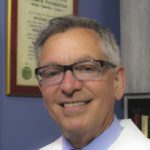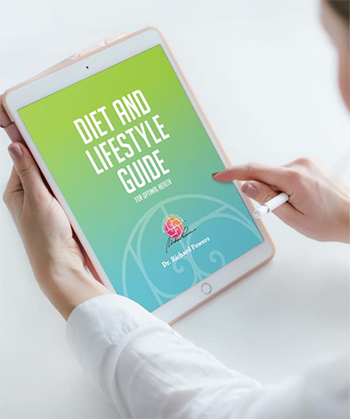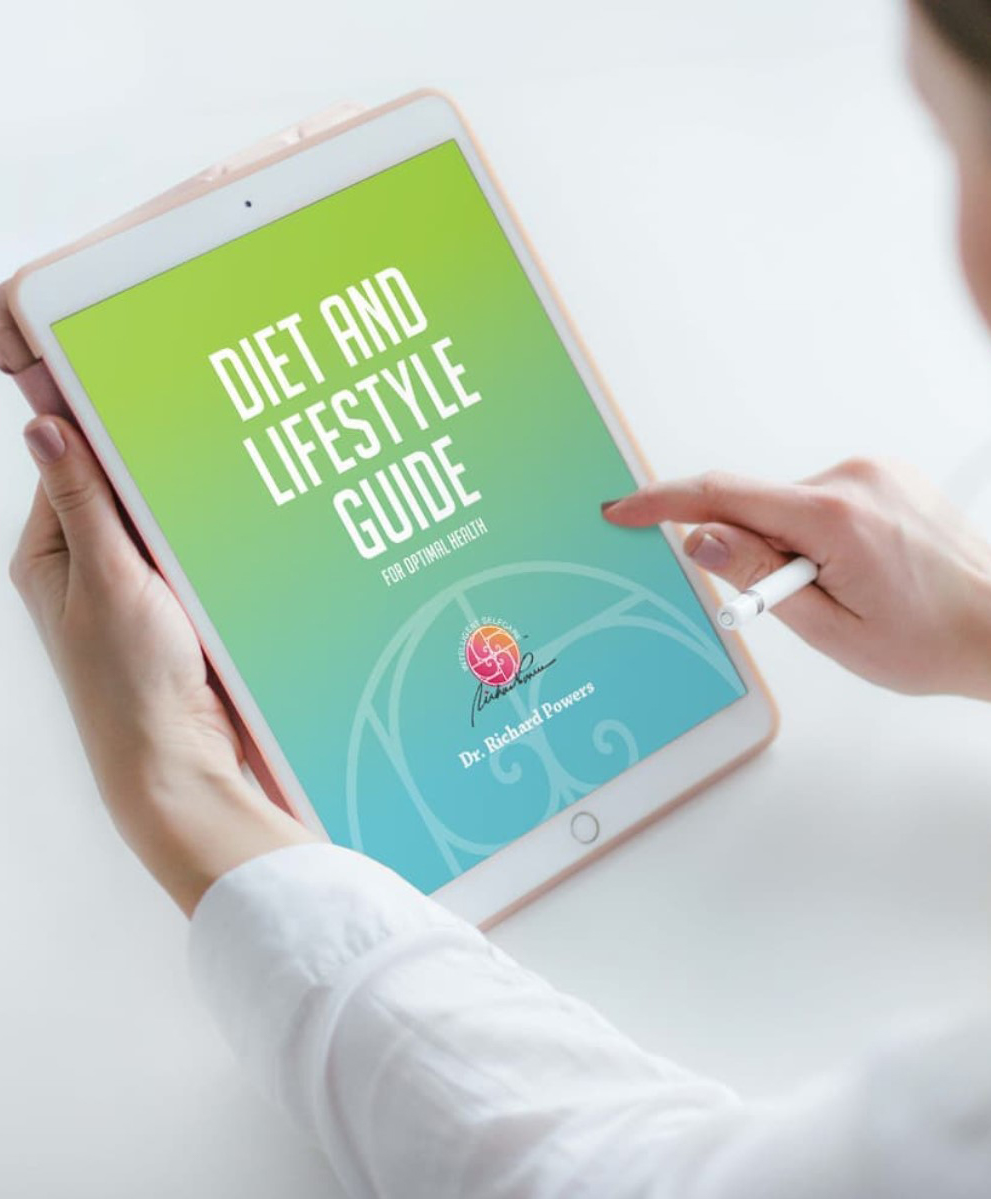
by Dr. Richard Powers
If you don’t feel or function as well as you want to it may be because you have unwittingly made some ill-informed healthcare decisions based on insufficient knowledge or flawed direction.
As a result, you may be experiencing recurring pain, discomfort, disability, or disease, and even worse, potentially leaving you feeling hopeless for your healing and a better life.
I created Intelligent Health® out of my passion to help end needless suffering in the world by clarifying that which safely and most predictably helps people regain and preserve their health and well-being.
We all want to feel and function well so we can live our best lives – at home, at work, and at play.
The good news is that there is much you can do by yourself and for yourself to get and stay well.
And if your mind and body are serving you well, I imagine you would like to live a long and fulfilling life.
But who do YOU TRUST to guide your important healthcare decisions? For example:
-
-
- What, how, and when to eat – to best facilitate your healing, daily repair, and your healthy weight and shape?
- How to “move” your body, i.e., exercise – to avoid injuries and maximize your results?
- Which procedures to pursue and when – to avoid unnecessary surgery and minimize the associated risks of infection, bleeding, nerve damage, memory loss, and more?
- What types of treatments are safe and beneficial – to help you feel better and promote your healing?
- Which, when, and how much supplementation to take – to optimize your health, alleviate your symptoms, reduce your disease risks, and avoid any potential (and unintentional) harm?
-
… and, how do you decide what to believe knowing that your (or your loved one’s) well-being is at stake?
BEWARE OF WHERE YOU RECEIVE YOUR HEALTHCARE GUIDANCE:
Dr. Google reveals health information … not necessarily beneficial direction!
You can do your own health research with the assistance of Dr. Google. But please remember, the internet offers information, opinions, and advice, and although it may be well-intended, the health guidance is often not beneficial.
So, when you ask “Dr. Google” what to do or take to improve your health, how do YOU distinguish healthful, wholesome guidance from partially true, unhelpful, or potentially harmful advice?
Your good common sense and prior knowledge is a great start, but is it enough for you to decipher fact from fiction, fallacy, and even fraud? Perhaps not, particularly when the information is misleading, partially true, includes unsubstantiated claims, or cites research that is irrelevant or biased … and you wouldn’t know it.
Your family, friends, and acquaintances may offer well-intended health advice, too … but frequently may not have solutions that are safe and effective for YOU!
You can ask “around” – your friends, family members, your neighbor, or your hairdresser for healthcare advice. Or, very often, your well-intended “community” will volunteer their opinion even without your asking.
But are they better informed than you are in human physiology, biochemistry, epidemiology, pathology, evolutionary biology, and clinical nutrition – the knowledge of which is required to adequately assess the potential value or harm of most interventions?
And just because someone you know did or took “XYZ” and felt better doesn’t mean that you will have the same or even similar result. The other “someone” may have coincidentally improved, unrelated to what they did or took. Or, perhaps “it” helped them, but wouldn’t help most people or YOU (given your state of health, medical history, physiology, etc.).
You could ask your doctor for advice on how to get and stay well … but he or she does not likely have the necessary extensive training and expertise in diet, lifestyle, and natural medicine.
With very few exceptions, most conventionally trained doctors have been taught to treat medical emergencies and to manage disease. By “manage” disease I mean that they might prescribe insulin to “manage” diabetes or a diuretic to “manage” high blood pressure.
Although these services are necessary and often a Godsend, most doctors still often lack the education, experience, and whole-person perspective to reveal and address the underlying causes to correct and help prevent disease. (For example, the causes of diabetes or high blood pressure is rarely addressed and therefore left uncorrected.)
If the doctor you normally consult is not trained nor has sufficient experience in integrative, “holistic” medicine, then they are ill-equipped to decipher the diet, lifestyle, and supplementation guidance that is likely to be more helpful than harmful for you.
Are your health decisions helping you or harming you?
Find an integrative, functional medicine physician here.
HOW TO AVOID UNINTENTIONAL CONSEQUENCES:
The human body is extremely complex. Your brain and nervous system, endocrine system (hormones), immune system, digestive system (and gut microbiome) and all your organs and glands are all connected to and communicate with every one of the trillions of cells in your body.
Without honoring how integrated your body is, your decisions to promote your well-being may end up unknowingly compromising it instead.
For example, a supplement you decide to take or a diet to pursue may potentially help you feel or look better in the short term but may very well result in long-term consequences (illness) down the road! (And at which time it is difficult to connect what you did and your undesirable outcome.)
As an integrative/functional medicine physician, I have ensured the safety and benefit of all my diet, lifestyle, and supplement recommendations (or a diagnostic procedure, treatment, therapy, drug, or surgical intervention), by considering the answers to the following questions:
-
-
- Biochemistry & Physiology – Does it fundamentally honor what is currently understood about how the body functions in health and disease, e.g., the healing and repair process; adaptation vs. compensation; physiologically vs. pathologically?
-
-
-
- Instinctive Behavior – Is it consistent with what we can learn from how children (uninfluenced) and animals (in the wild) naturally and instinctively act and behave, e.g., what they eat; how they move; sleep habits, and environments.
-
-
-
- Evolutionary Biology – How does it align with (or not) what our ancestors ate; how much/often they moved their bodies; their degree of toxic exposure (minimal); their sleep hygiene (pre-informational/digital; pre-industrial), i.e., relative to our potential adaptive capacities of our genome and microbiome (over that period of time)?
-
-
-
- Epidemiology – Does it honor what we have learned from population trends and resulting health outcomes? It is important to consider “locally specific” factors that may influence epidemiological outcomes (and associated conclusions). For example, in the study of Blue Zones (communities with the highest percentage of centenarians), beyond the diet they consume and lifestyle they enjoy, potentially unique genetic traits, microbiomes, or environmental influences, geographically confined to these communities may confer their longevity. Similarly, any of these factors may affect their ability to “safely” consume a specific diet, e.g., high fat, dairy, or red meat diets (APO-C3 genes in townspeople of Anogia, as well as with the Amish).
-
-
-
- Valid Research – Is it in alignment with legitimate research/trial outcomes (ideally on humans) based on well-designed studies, with relevant conclusions, and particularly without (or with minimal) bias and conflicts of interest?
-
-
-
- Clinical Experience – Does it “match” with what has been observed to more consistently create positive outcomes – both subjectively and objectively – in a real-world, integrative medicine clinical setting?
-
-
-
- Common Sense – Does the “treatment” or “procedure” appear to be the safest and potentially most beneficial next step? After assessing the preponderance of evidence – and, when possible, considering an individual’s unique context (genome; microbiome; test results; etc.) – what conclusions can be ascertained around a procedure, treatment, medicine, or supplement, that would most predictably result in the safest and most beneficial outcome?
-
FIND A SAFE AND RELIABLE HEALTHCARE RESOURCE:
Getting and staying well requires your self-advocacy, but also making well-informed, physiologically sound, healthcare decisions.
Your best bet then is to reference a resource that considers the complexity of the human body (that is, the above bullet points), and that is based on extensive training, research, and decades of clinical experience in integrative, “holistic” medicine.
Intelligent Health® was born out of Dr. Powers’ lifelong investigation and, as a result, the guidance within provides you, your family and friends, and the world at large with a trustworthy online wellness resource and shop.
By investigating what truly creates health – including safer, alternative strategies to drugs and surgery, all of which carry life-long risks – Intelligent Health® helps protect the quality of your life (healthspan) and “quantity” of your life (lifespan).
Well suited to serve as your starting point for simple yet empowering insights, Intelligent Health® offers wholesome and scientifically sound advice, and practical and safe solutions as you navigate your health journey.
BOTTOM-LINE:
-
-
- Who you TRUST for your healthcare guidance matters big time! Your health and well-being impact EVERY aspect of your existence and depend on the CHOICES you make.
-
-
-
- Intelligent Health® honors the complexity of the human body and as such provides you with safe-and-sound, wholesome, science-based healthcare guidance to help facilitate your healing and foster your well-being
- Intelligent Health® helps you clarify and simplify that which truly creates vs. sabotages your health so you can better promote and protect your well-being.
-
To this end, I encourage you to use Intelligent Health® resources, Intelligent SelfCare™ programs, and my library of articles to help you make more informed decisions to:
-
-
- Restore your hope for healing and a better quality of life
-
-
-
- Experience your full health potential
-
-
-
- Avoid a common family fate – be it cancer, a heart attack or stroke, diabetes, kidney disease, or more.
-
Your health is your most precious asset. Intelligent Health® serves as your trustworthy resource to regain it and to protect it.
![]()
Learn more about Intelligent SelfCare™.
Dr. Powers’ biography and Curriculum Vitae








